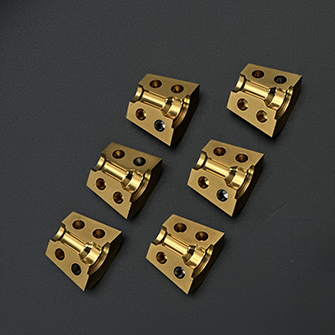Three-Piece Collapsible Molds have revolutionized modern manufacturing by enabling the production of complex and precise components. As industries become more specialized, the need for customized mold solutions has surged. Customization allows manufacturers to meet specific production demands, optimize efficiency, and create unique designs that cater to diverse industrial applications. In this article, we explore the trends driving the customization of Three-Piece Collapsible Molds and how they address the needs of various sectors.

1. Growing Demand for Industry-Specific Solutions
Different industries, such as automotive, medical, packaging, and consumer goods, have unique requirements for their products. Custom Three-Piece Collapsible Molds are tailored to these needs, ensuring that the molds can produce parts with precise dimensions, intricate geometries, and specific material properties.
Automotive Industry: Molds are customized to create lightweight, durable parts with complex shapes for fuel efficiency and design innovation.
Medical Sector: Precision is paramount, as molds are often used to produce surgical instruments, implants, and diagnostic equipment components.
Consumer Goods: Custom molds allow for creative designs, such as unique bottle caps, packaging closures, and ergonomic product features.
2. Advances in Material Compatibility
One of the key trends in mold customization is designing for compatibility with advanced materials. Industries increasingly use materials such as high-performance plastics, composites, and bioplastics. Custom Three-Piece Collapsible Molds are engineered to handle these materials efficiently while maintaining product quality and durability.
Thermoplastics and Elastomers: Custom molds ensure consistent flow and cooling for materials requiring precision in shrinkage control.
Recyclable and Sustainable Materials: With a focus on sustainability, molds are adapted to work seamlessly with biodegradable and recyclable materials.
3. Adoption of Advanced Design Software
Modern CAD (Computer-Aided Design) and CAM (Computer-Aided Manufacturing) software have transformed how molds are designed and customized. Advanced software enables manufacturers to:
Simulate Performance: Identify potential issues, such as warping or uneven cooling, before production begins.
Optimize Geometry: Design intricate, collapsible components that maximize efficiency and minimize material waste.
Enhance Speed: Rapid prototyping and design iterations significantly reduce lead times.
4. Integration of Additive Manufacturing
The incorporation of 3D printing into the mold-making process has significantly enhanced customization capabilities. Additive manufacturing allows for:
Rapid Prototyping: Quick creation of mold prototypes to validate designs and make adjustments.
Complex Features: Creation of intricate and unconventional designs that would be challenging with traditional methods.
Cost Efficiency: Reduced waste and production costs, particularly for low-volume or experimental molds.
5. Modularity and Scalability in Mold Design
Custom molds are now being designed with modularity in mind, allowing manufacturers to adjust components for different applications. This trend is particularly useful for industries requiring multiple variations of a product.
Interchangeable Components: Modular Three-Piece Collapsible Molds enable quick changes to produce various part designs without creating entirely new molds.
Scalable Production: Custom molds can be adapted for small-scale prototypes or high-volume production lines, offering flexibility to manufacturers.
6. Enhanced Durability for Extended Lifecycle
Customized molds are increasingly engineered for durability to withstand high production demands. Features include:
Wear-Resistant Coatings: Advanced coatings reduce friction and wear, ensuring consistent performance over time.
Heat Treatment Processes: Improved resistance to thermal and mechanical stress extends mold life.
7. Focus on Automation and Smart Manufacturing
Incorporating automation into custom mold production is another growing trend. Automated systems improve precision and reduce human error, while smart technologies enable real-time monitoring and adjustments.
Robotic Assistance: Integration with automated machinery for seamless production.
IoT and Sensors: Real-time data collection on mold performance to optimize efficiency and identify maintenance needs.
8. Sustainable Manufacturing Practices
Sustainability has become a driving force in custom mold design. Manufacturers are prioritizing energy-efficient processes, recyclable materials, and waste reduction. Custom Three-Piece Collapsible Molds are tailored to meet these green manufacturing goals.
Energy-Efficient Cooling Systems: Optimized cooling channels to reduce energy consumption.
Reduced Scrap Rates: Precision engineering minimizes defects and material waste.
9. Cross-Industry Collaboration
Collaboration between mold designers and manufacturers is essential for customization. Close partnerships ensure that the molds align perfectly with production requirements, resulting in higher efficiency and better product outcomes.
10. The Future of Custom Three-Piece Collapsible Molds
As industries evolve, the demand for innovative, customized molds will continue to grow. Emerging technologies such as AI-driven design optimization and advanced material science will shape the future of mold customization, enabling manufacturers to achieve unparalleled levels of precision, efficiency, and sustainability.
The customization of Three-Piece Collapsible Molds is more than just a trend—it is a necessity for industries striving to meet specific production demands. By leveraging advanced technologies, modular designs, and sustainable practices, manufacturers can create molds that not only meet current needs but also adapt to future challenges. Whether for automotive, medical, or consumer goods applications, customized molds are at the forefront of modern manufacturing innovation.








